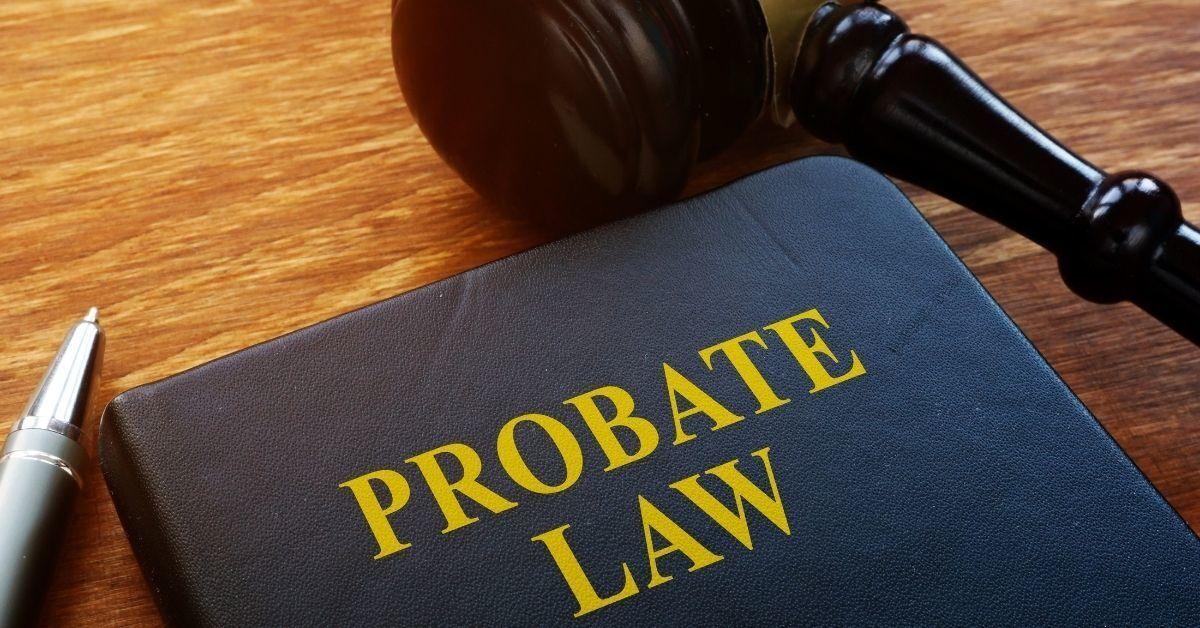Have you recently inherited a will from a deceased loved one and are pondering, “Is it necessary to probate this document?” Probate might appear to be an intimidating process, but don’t worry – we’re here to walk you through the steps and assist you in making an educated decision. Let’s dive into the realm of probate and demystify what it involves.
Decoding Probate: What it is and When it is Necessary
Probate is a legal procedure that validates a deceased person’s will and supervises the distribution of their assets. It is required in certain circumstances to ensure that the deceased’s wishes are executed correctly and to settle any disputes that might arise. Knowing when probate is necessary can help streamline the process and prevent unnecessary complications.
When an individual dies, their estate typically undergoes probate if:
- The deceased left assets solely in their name
- There is a dispute over the legitimacy of the will
- Creditors need to be settled
During probate, a court-appointed executor is responsible for:
- Identifying and cataloging the deceased’s assets
- Settling debts and taxes owed by the estate
- Distributing the remaining assets to the beneficiaries named in the will
| Assets | Debts |
|---|---|
| Real estate | Mortgage |
| Investments | Credit card debt |
| Personal property | Medical bills |
Advantages of Probating a Will: Securing Assets and Confirming Legal Validity
Probating a will might seem like a challenging task, but it offers several advantages that can safeguard assets and confirm the legal validity of the document. One of the primary benefits of probating a will is that it provides a clear procedure for distributing assets according to the deceased’s wishes. By undergoing the probate process, you can prevent potential disputes among family members and ensure that all assets are distributed equitably.
Another advantage of probating a will is that it can help protect the deceased’s assets from creditors. During the probate process, creditors have a limited timeframe to make claims against the estate. This can prevent creditors from seizing assets intended to be passed on to beneficiaries.
Furthermore, probating a will can provide legal validation of the document, ensuring that it meets all the necessary requirements to be considered valid. This can help prevent future challenges to the will’s validity and give beneficiaries peace of mind knowing that the document has been legally executed.
Alternatives to Probate: Exploring Your Options and Making Informed Decisions
When it comes to managing a loved one’s estate, many people are often uncertain whether they need to go through the probate process. Probate can be lengthy, costly, and stressful, so it’s understandable why many individuals would prefer to avoid it if possible. Luckily, there are alternatives to probate that can be considered.
One alternative to probate is setting up a living trust. A living trust allows your assets to pass directly to your beneficiaries without having to go through the probate process. This can help save time and money, as well as provide more privacy for your estate. Another option is joint tenancy or survivorship rights, which allow certain assets to pass directly to a surviving joint owner. Additionally, some assets, such as life insurance policies and retirement accounts, can be designated to bypass probate and go directly to the named beneficiaries.
It’s crucial to carefully consider your options and make informed decisions when it comes to managing an estate. Consulting with an estate planning attorney can help you determine the best course of action for your specific situation. By exploring alternatives to probate, you can potentially save time, money, and stress for both yourself and your loved ones.
Consulting with Legal Professionals: Seeking Expert Guidance and Assistance
When it comes to the legal process of managing a deceased individual’s estate, a common question that arises is whether or not the will needs to be probated. Probate is the court-supervised process of distributing a deceased person’s assets according to their will. Here are some key points to consider when determining if you need to probate a will:
- Review the state laws: Each state has its own laws regarding probate, so it’s important to consult with a legal professional who is familiar with the specific state laws where the deceased individual resided.
- Size of the estate: In some cases, if the estate is small and does not contain significant assets, probate may not be necessary. A legal professional can help determine if the estate qualifies for any simplified probate procedures.
- Debts and creditors: If the deceased individual had outstanding debts, probate may be necessary to ensure that creditors are properly notified and that debts are settled from the estate.
Ultimately, consulting with a legal professional is essential to determine whether or not you need to probate a will. They can provide expert guidance and assistance throughout the probate process, ensuring that the deceased individual’s wishes are executed in accordance with the law.
Looking Ahead
In conclusion, probating a will may seem like a daunting process, but it is often necessary to ensure that the deceased’s final wishes are executed correctly. If you find yourself asking, “Do I have to probate a will?”, it is best to seek guidance from a legal professional to help navigate the complexities of the probate process. Remember, probate is not always required, but when it is, it is important to handle it with care and diligence. Thank you for reading and best of luck in your estate planning journey.
 **Meta Title: Is Probating a Will Necessary? Unraveling the Mystery**
**Meta Title: Is Probating a Will Necessary? Unraveling the Mystery**
**Meta Description: Discover the ins and outs of probating a will and whether it is necessary for you and your loved ones. Learn about the benefits, practical tips, and real-life case studies to make an informed decision.**
Have you ever wondered if probating a will is necessary? The process of probating a will can seem daunting and confusing, but it doesn’t have to be. In this article, we will unravel the mystery surrounding probating a will and help you understand whether it is necessary for you and your loved ones.
**What is Probating a Will?**
Probating a will is the legal process of administering a deceased person’s will through the court system. During probate, the court validates the will, appoints an executor to carry out the terms of the will, settles any outstanding debts or taxes, and distributes the assets to the beneficiaries named in the will.
**Is Probating a Will Necessary?**
Whether probating a will is necessary depends on several factors, including the state laws where the deceased person lived, the size and complexity of the estate, and the assets and debts left behind. In general, probate may be necessary if:
– The deceased person owned assets titled solely in their name
– There are creditors or debts that need to be settled
– Disputes arise over the distribution of assets
– The deceased person left behind real estate or valuable assets
**Benefits of Probating a Will**
While probate can be time-consuming and costly, there are some benefits to probating a will, including:
– Validating the authenticity of the will
– Ensuring the deceased person’s wishes are carried out
– Providing legal protection for the executor
– Resolving disputes among beneficiaries
– Settling debts and taxes owed by the estate
**Practical Tips for Probating a Will**
If you find yourself in a situation where you need to probate a will, here are some practical tips to help you navigate the process:
1. Consult with an estate planning attorney to ensure you understand the probate process and your legal obligations.
2. Gather all relevant documents, including the deceased person’s will, financial records, and contact information for beneficiaries and creditors.
3. File the necessary paperwork with the probate court and follow their guidelines for probating the will.
4. Keep detailed records of all transactions and communications related to the probate process.
5. Communicate openly and honestly with all parties involved to avoid misunderstandings or conflicts.
**Case Studies: Real-Life Examples of Probating a Will**
To better understand the probate process, let’s look at a couple of real-life case studies:
– **Case Study 1: Jane’s Will**
Jane passed away without a will, leaving behind a house and savings account. Her estate went through probate, and the court appointed her nephew as the executor. The assets were distributed according to state law, with the nephew receiving a portion and the remaining assets going to Jane’s siblings.
– **Case Study 2: John’s Will**
John had a valid will that named his son as the executor and divided his assets equally among his three children. The will was probated, and the assets were distributed as specified in the will, with the court overseeing the process to ensure fairness and legality.
**In Conclusion**
Probating a will may seem like a daunting task, but with the right information and guidance, it can be a relatively straightforward process. By understanding the factors that determine whether probate is necessary, the benefits of probating a will, and practical tips for navigating the process, you can make informed decisions for yourself and your loved ones. If you ever find yourself in a situation where probating a will is necessary, don’t hesitate to seek assistance from an estate planning attorney to ensure a smooth and efficient probate process.


